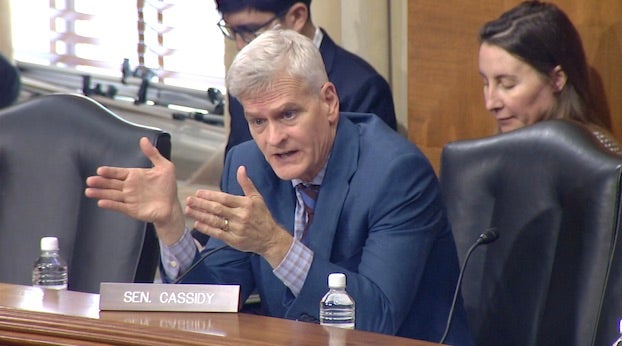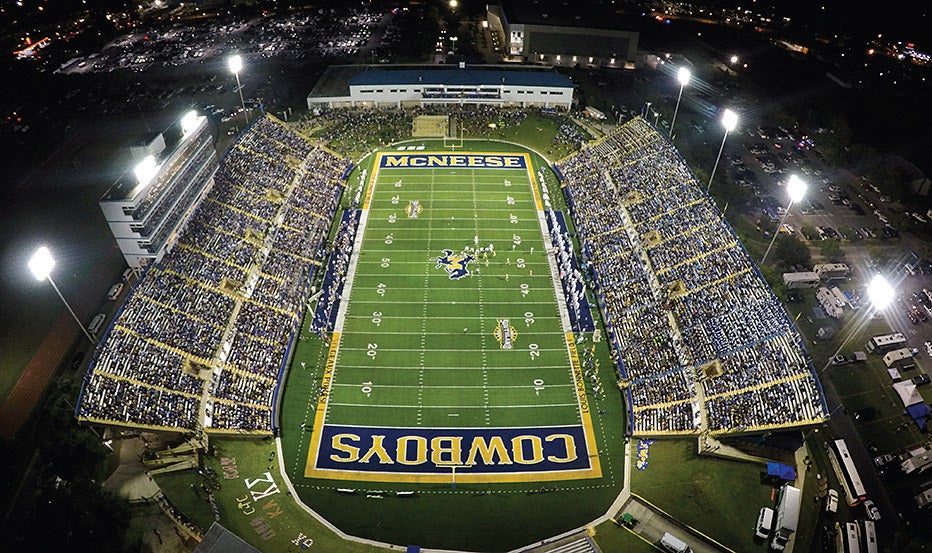Jim Beam column: Auto premiums ‘eating our lunch’
Published 6:01 am Saturday, August 10, 2024

- Louisiana's premiums on auto insurance are the third highest in the country and legiislators failed to give consumers much relief at their session.(Photo courtesy of monsenso.com).
When it comes to auto insurance, Louisiana motorists definitely “got the short end of the stick” at the regular session of the Legislature that ended on June 3. Gov. Jeff Landry after the session vetoed what business interests considered a major auto insurance reform bill.
In addition, The Advocate reported that Landry insisted during the session that legislators weaken other reform bills that were approved. Not happy about any of that, four separate legislative committees met Wednesday to hear testimony about the factors contributing to high personal and commercial auto insurance rates.
Here is the problem:
Trending
Louisiana has the third highest average annual auto insurance premium in the country, which is $3,618. Florida is No. 1 at $3,945 and New York is No. 2 at $3,840.
When it comes to the percentage of income spent on auto coverage, Insurance Business magazine said Louisiana ranks No. 1. State motorists set aside 7% of their income to pay premiums, almost 2% more compared to last year.
I had two minor accidents in the last three years and my premium is going to increase by $121.69 per month or by 47%. My annual premium this year has been $3,076. The next annual premium will be $4,536.
Members of the Senate Insurance Committee this week made plans for a potential resurrection of the bill that Landry vetoed. Rep. Michael Melerine, R-Shreveport, an insurance defense attorney, sponsored that bill that dealt with what is called the complicated Collateral Source Rule (CSR}. It passed the House 88-10 and the Senate 25-14.
Investopedia, a media website that provides financial information, said the rule says damages awarded by a court to someone filing a lawsuit cannot be reduced by any amount that is paid to that person from other sources. Those other sources can include health insurance or property insurance, workers’ compensation, Social Security disability benefits or life insurance.
The Louisiana Association of Business and Industry said the business community was deeply disappointed by Landry’s veto. It said had the governor signed the bill, it would have sent a resounding message to all insurance carriers that Louisiana is indeed open for business “as we work to fix our unstable insurance market.”
Trending
The Louisiana Radio Network reported that Landry said, “If you’re going to protect the working class, the Collateral Source Doctrine is the only portion of tort law that protects the working class.”
In his veto message, Landry said in 2020 the Legislature reduced the CSR amount injured parties can receive in court by 60% but car insurance rates have continued to rise. He said the CSR only impacts cases that are going to trial, and very few cases are actually going to trial.
Tim Temple, the state insurance commissioner, said the CSR still produces windfall payments that result in accident victims getting more than they deserve.
“If you’re driving a Ford and your Ford is damaged, you get another Ford. You don’t get a Ferrari,” Temple told the network.
Temple told Insurance Business magazine, “Louisianans have suffered from ridiculously expensive auto insurance premiums for far too long. We all have friends in states like Texas and Mississippi who save money while we pay twice as much to insure our family vehicles.
“Louisiana businesses, especially those near our borders, are setting up shop in other states to avoid our extreme rates,” Temple said.
The Advocate said Landry’s bid for governor was funded in part by trial attorneys who represent and make money off of injured plaintiffs that sue businesses and insurance companies. And it said Landry protected the interests of trial attorneys during the session.
Landry said trial lawyers accounted for only 7% of his overall political contributions, but it was still a sizable amount.
Sen. Royce Duplessis, D-New Orleans, an attorney who sometimes represents plaintiffs filing suits, said he didn’t think the state would make progress in lowering insurance rates until it looked at factors such as road quality, education and poverty and drilled down the actual science which determines rates.
Yes, those are also legitimate reasons for high insurance rates but the costly court payments to drivers who file lawsuits are still a major factor.
Jim Beam, the retired editor of the American Press, has covered people and politics for more than six decades. Contact him at 337-515-8871 or jim.beam.press@gmail.com.
| ReplyForward
Add reaction |





